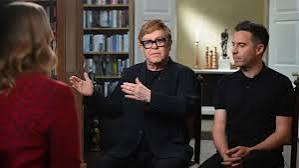The Academy of Motion Picture Arts and Sciences has issued an apology following backlash over its initial response to the recent detention of Palestinian filmmaker Hamdan Ballal.
Ballal, who co-directed the Oscar-winning documentary No Other Land, was allegedly attacked by Israeli settlers before being detained by the Israeli military. Though later released, his arrest sparked outrage within Hollywood, with nearly 700 Academy members, including several A-list actors, criticizing the Academy for its failure to directly acknowledge Ballal and his film in its initial statement.
In an open letter addressed to the Academy, prominent figures such as Mark Ruffalo, Javier Bardem, Olivia Colman, Joaquin Phoenix, Emma Thompson, Penélope Cruz, and Richard Gere condemned the organization’s silence.
Acclaimed directors Jonathan Glazer and Ava DuVernay also added their voices to the criticism. “It is indefensible for an organization to recognize a film with an award in the first week of March, and then fail to defend its filmmakers just a few weeks later,” the letter stated.
The signatories emphasized the significance of Ballal’s Oscar win, highlighting that No Other Land achieved its success without the extensive and expensive promotional campaigns typical of many Academy Award contenders.
The letter also framed Ballal’s detention as part of a broader issue of silencing dissenting voices. “The targeting of Ballal is not just an attack on one filmmaker – it is an attack on all those who dare to bear witness and tell inconvenient truths,” the statement read.
By ignoring Ballal’s situation, the Academy was seen as failing to uphold the values of artistic freedom and human rights that it purportedly supports. The criticism gained traction on social media, with calls for the Academy to rectify its omission and take a stronger stance against violence and suppression of speech.
Responding to the growing outcry, the Academy released a revised statement on Friday in which it formally named Ballal and extended an apology. “We regret that we failed to directly acknowledge Mr. Ballal and the film by name,” the statement read.
It continued, “We sincerely apologize to Mr. Ballal and all artists who felt unsupported by our previous statement and want to make it clear that the Academy condemns violence of this kind anywhere in the world.” The Academy also emphasized its opposition to any suppression of free speech, adding, “We abhor the suppression of free speech under any circumstances.”
Ballal was reportedly freed one day after the incident, with his co-director, Yuval Abraham, stating that he had been beaten by settlers before being taken by Israeli soldiers from an ambulance. However, the Israel Defense Forces (IDF) denied this version of events, claiming instead that Ballal, along with two other Palestinians and one Israeli, had been detained on suspicion of “rock hurling” at security forces.
Despite these conflicting accounts, the case has drawn significant international attention, adding fuel to ongoing debates about the treatment of Palestinian civilians and the role of artistic expression in political discourse.
No Other Land, the documentary at the center of the controversy, explores the struggle over Masafer Yatta, a cluster of about 20 Palestinian villages under threat of eviction by Israeli authorities. The film, which delves into the complex dynamics of resistance and friendship between co-directors Ballal and Abraham, has been widely praised for its raw and unfiltered storytelling.
Its Academy Award win was seen as a landmark moment for Palestinian cinema, and the filmmakers’ recent ordeal has only intensified conversations about the challenges faced by those documenting the realities of life under occupation.





